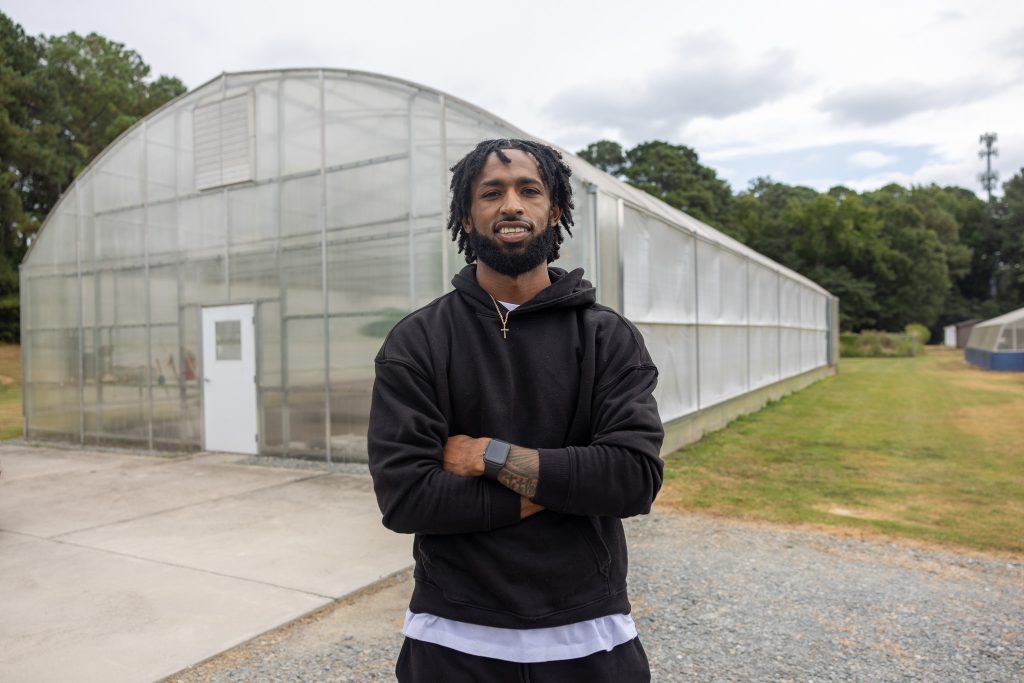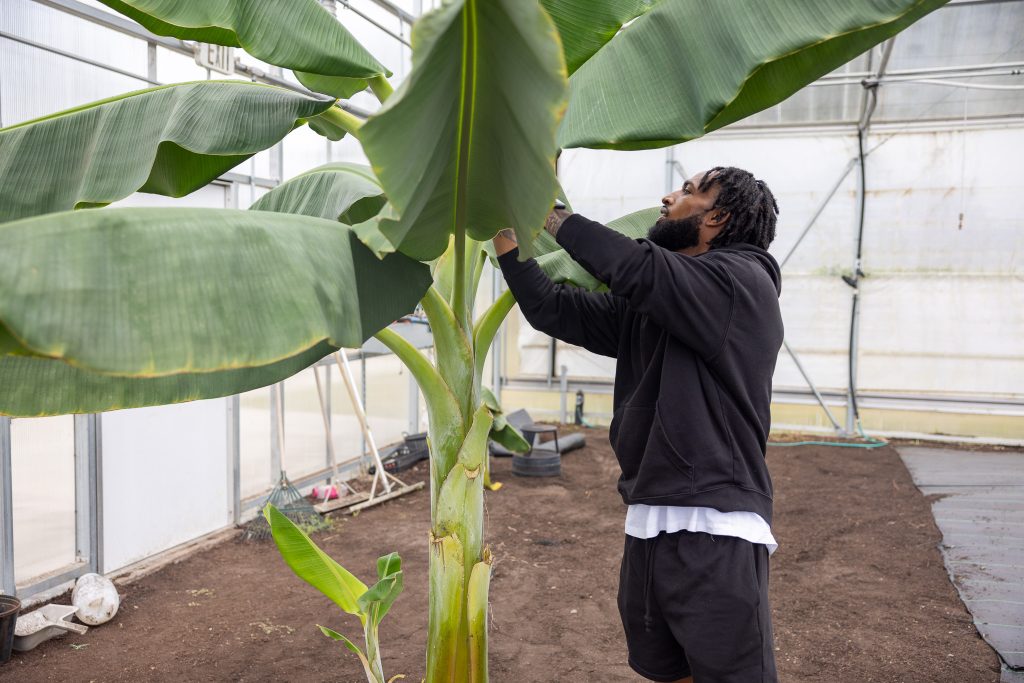Devante Mason grew up on a farm in South Carolina where he learned about agriculture from his grandfather, a farmer with over 100 acres of land. When Mason ended up in Goldsboro, North Carolina, due to his military career, he felt drawn back into the industry he was raised in and turned to Wayne Community College’s Agriculture and Natural Resources programs to prepare him for the future.
Agricultural roots
Mason served in the U.S. Air Force for six years and was stationed at Seymour Johnson Air Force Base in Goldsboro. After his service ended, he began considering a career in agriculture, something he had always been passionate about. With a desire to further his knowledge, Mason enrolled in both the Sustainable Agriculture and Agribusiness Technology programs at WCC.
Despite the fact that Mason grew up learning the ins and outs of farming, it was important to him that he get a formal education due to how rapidly things change within the field. “Although I come from an agricultural background, I came to school with a completely open mind, trying to learn as much information as I could about all of the new technologies in agriculture today,” he said.

The state’s top industry
To prepare students to work in North Carolina’s top industry, WCC’s Sustainable Agriculture program provides them with the entrepreneurial and technical skills necessary to manage a profitable, environmentally sound, community-based small farm or agricultural business. The College’s Agribusiness Technology program trains students in the business segment of the agriculture industry.
Each program offers an Associate in Applied Science degree and certificates, as well as the opportunity to transfer to the University of Mount Olive to earn a Bachelor of Science in Agricultural Production Systems.
Work-based learning
Both programs incorporate work-based learning into the curriculum, requiring students to gain experience in the industry to connect with others and attract more opportunities for their careers.
Mason works at 12:03AM Farm in Faison where he connects his classroom training with real-life farming experience, implementing new technology for sustainability. He assists in maintaining livestock, planting and crop rotation, and techniques like tarping and trellising. “Everything we learn in class is applied to my day-to-day,” he said.
The agribusiness side of his double major has shown Mason the importance of networking. “WCC has brought me great success with networking,” he said. “It’s a small community, and that’s what I wanted. It’s easier to create bonds.”

The future of agriculture
Mason will graduate from WCC with two associate degrees in the spring of 2026. He plans to continue his education in agribusiness and explore more of the governmental side of agriculture.
With agriculture playing a crucial role in Wayne County’s regional economy, Mason believes pursuing a degree will better prepare interested individuals for what they need to know about the field. “I would suggest starting at WCC because of the community,” he said. “There are a lot of resources here, too. I’ve had a great experience and highly advise it.”
Mason is eager to share the knowledge he has gained at WCC with his grandfather and continue making him proud. Whatever his future holds, Mason hopes to stay focused on his passion and the roots that have always supported him. “Agriculture is great because of what you can learn through it—what’s necessary in life,” he said.
Learn more about WCC’s Agriculture and Natural Resources department on our website, or contact Department Chair Gabe Mitchell (gjmitchell@waynecc.edu or 919-739-6807).
